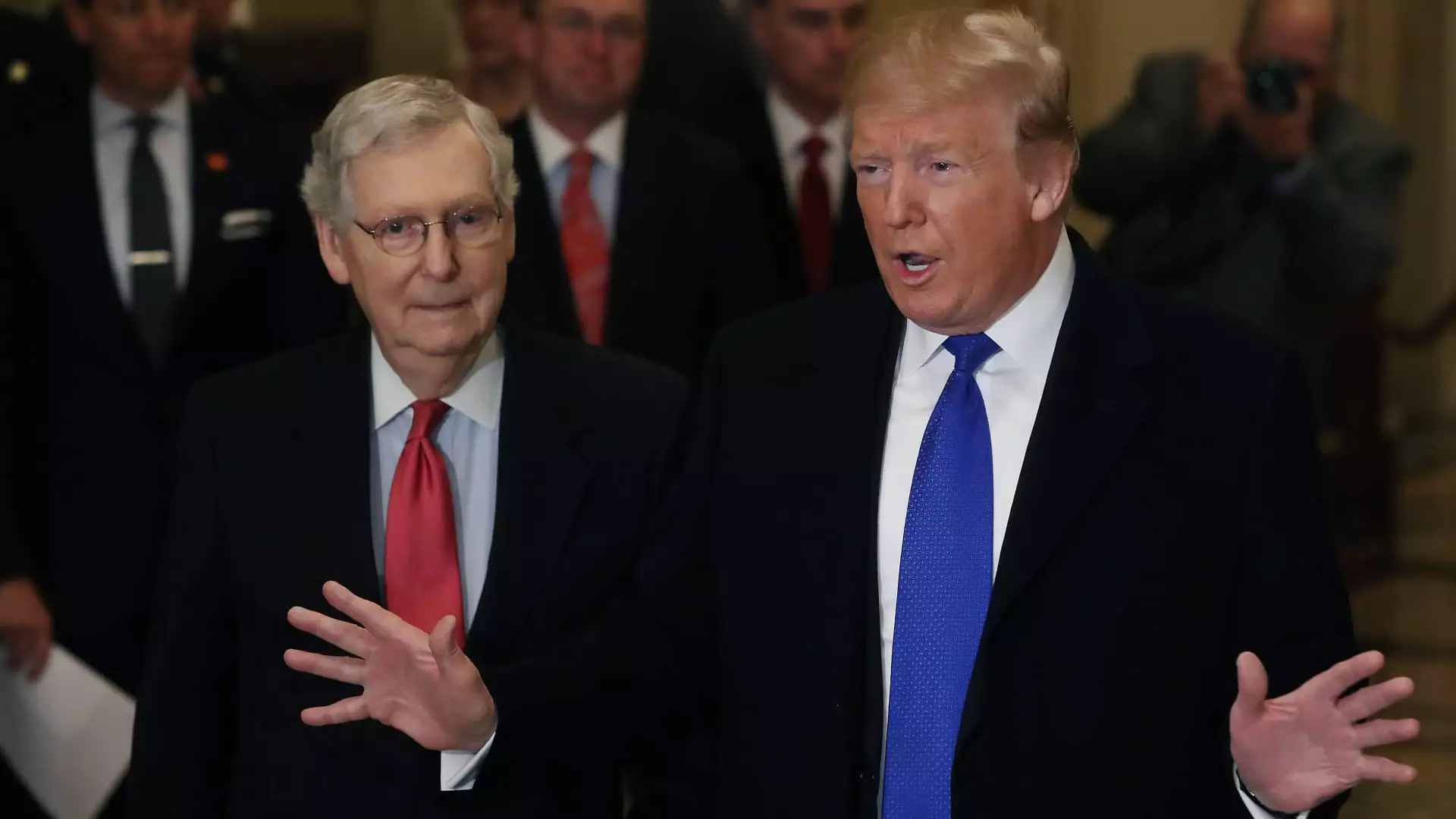In recent times, the ongoing debate regarding tariffs has intensified, especially with the introduction of sweeping tariff plans by former President Donald Trump. While the intention behind such economic measures may seem focused on protecting American jobs and industries, the potential repercussions could be far-reaching. Among those voicing their concerns is Senate Minority Leader Mitch McConnell, whose critique of Trump’s aggressive tariff strategies highlights the intricate balance between protectionism and the realities of the domestic economy.
Senator McConnell has articulated a strong stance against initiating trade wars with U.S. partners. His warnings serve as a prudent reminder that economic protectionism can lead to unintended consequences, particularly for American households and businesses. The imposition of broad tariffs on key trading partners such as Canada, Mexico, and China—countries that are vital to the U.S. economy—could exacerbate financial burdens. Increased costs for imported goods could ripple through various sectors, ultimately impacting consumers by elevating prices on everyday products.
A crucial aspect of McConnell’s argument deals with the specific ramifications of tariff policies on industries within his home state of Kentucky. The state’s economy is heavily reliant on agriculture and manufacturing, sectors that could suffer from the fallout of tariffs. For instance, the agriculture sector boasts about 75,000 farms that thrive on international sales. Any disruption in this trade due to tariffs could cripple their ability to operate profitably and sustain jobs.
Moreover, Kentucky’s auto industry, which is substantially interconnected with global supply chains, is at risk as tariffs can lead to increased production costs. Compounded by the ripple effect of higher prices, the economic viability of these industries in Kentucky could be threatened, causing a detrimental impact on employment.
One of the most distinctive characteristics of Kentucky’s economy is its renowned bourbon industry. As the state produces approximately 95% of the world’s bourbon, any adverse effects stemming from protective tariffs could jeopardize this iconic trademark. With bourbon accounting for a significant portion of the state’s exports—valued at nearly $500 million in previous years—policies that raise production costs could threaten the industry’s progress and market presence.
McConnell’s reflections are substantial, encouraging a thoughtful examination of economic policies related to tariffs. The delicate interplay between safeguarding American jobs and maintaining competitive pricing for consumers merits careful consideration. As the nation navigates complexities in trade relationships, it is imperative to engage in dialogues that prioritize sustainable growth without resorting to counterproductive protectionist measures. Ultimately, the focus should shift towards creating an economic environment that fosters collaboration rather than conflict on the global stage.


Leave a Reply